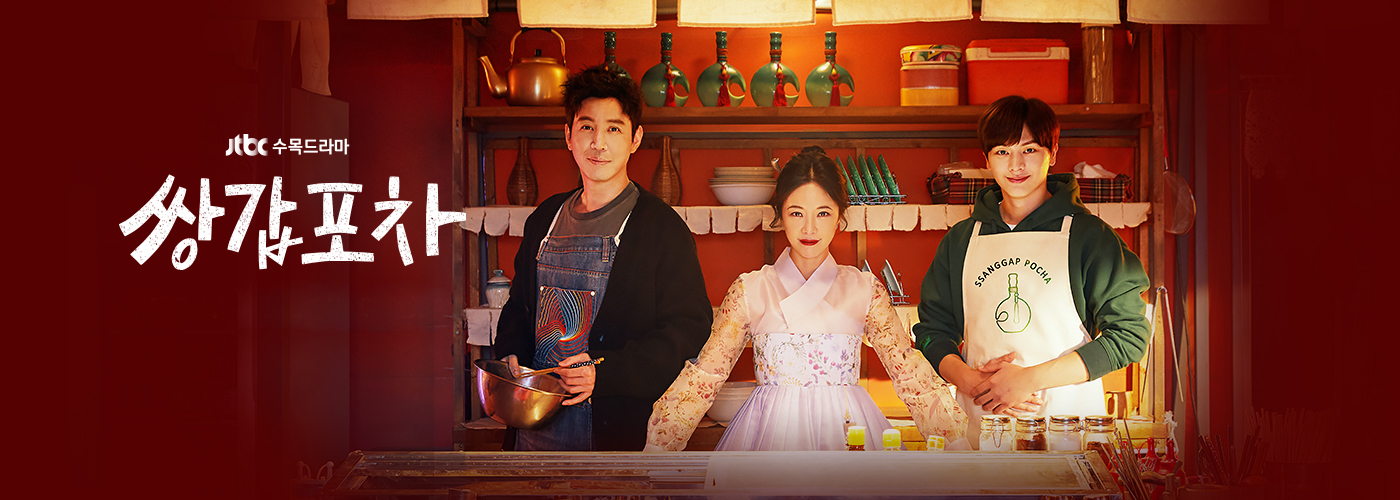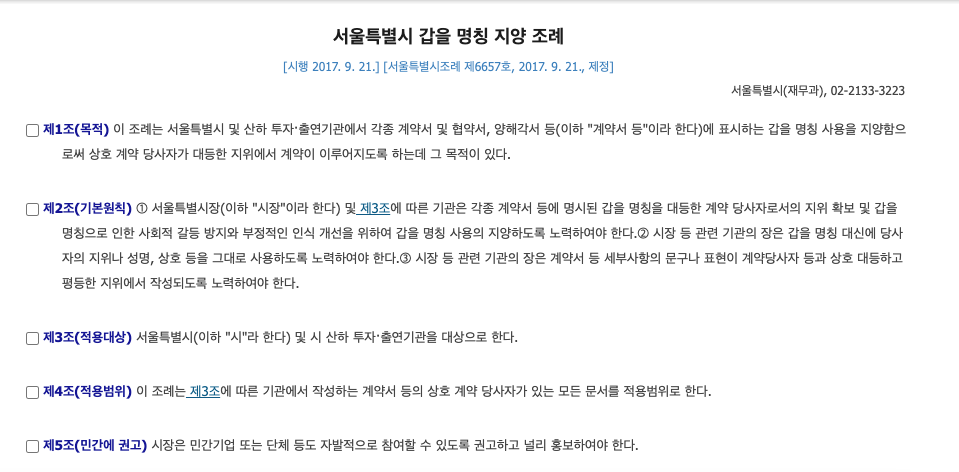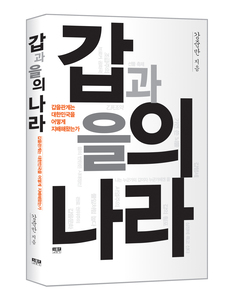
前國際新聞編譯,韓劇、書籍成癮人士。 每週分享讀書心得,偶爾介紹韓國文化。
[Looking at Korean dramas and talking about Korea] "Shuangjia Roadside Stand": Korea's "A-B relationship" and "soda revenge addiction"
"Remorse in reality is eliminated in dreams." In May 2020, "Shuangjia Roadside Stand" launched by JTBC was launched on Netflix, relying on the actor Huang Zhengyin who had performed "She's Pretty", plus Cui Yuanying and Lu Xingcai's lineup has won the favor of many Taiwanese audiences. Even if all the episodes have been completed for more than a month, "Shuangjia Roadside Stand" can still maintain the top ten in the popular series. Apart from handsome men and beauties, what other aspects of Korean society are hidden in the plot? Today, let's start from "Shuangjia Roadside Stand" and talk about South Korea's "A and B culture" and "soda revenge mentality".

What is "A-B relationship"?
" Shuangjia, don't you understand what this means? You and I are both bosses (Party A, 갑), and both are bosses. " In the beginning, the meaning of "Double Armor" is explained. But what is "A"?
The so-called "A" is the "Party A" in the contract relative to "Party B", which represents the party making the request in the process of cooperation between the two parties, and is usually more proactive at the same time. Extending from this meaning, Koreans use "A and B" to indicate a relationship in which one party has a relatively dominant position (Party A) and the other party is relatively weak (Party B). And "Party A's behavior" (갑질) is extended to describe "A"'s bad behavior of using power, intimidating and bullying "B".
According to the Korean Wikipedia "Tree Wiki" (나무위키), "A- B relationship " may occur in: contractors and contractors, VIP customers and merchants, media and reported persons, family relations, bureaucracy in public offices, general workplaces and school etc. It can be said that as long as you socialize in Korea, you will inevitably encounter "A-B relationship".
Due to the unequal power and the emphasis on politeness and ethics in Korean society, the "A-B relationship" often leads to "Party A's behavior", which is the so-called bullying. Among them, the workplace is the most serious. According to the 2017 statistics from "Digital North Korea", nearly 90% of office workers said they had been bullied in the workplace. From 2014 to 2019, the family of Cho Liang-ho, the former chairman of Korean Air, broke out one after another of violence against employees, which also became the focus of Taiwanese media.
Although they are dissatisfied with the "A-B relationship" and "Party A's behavior", they cannot be expressed in reality, which makes the Korean people turn to TV dramas for solace. one of the elements.

The thirst for justice is given to "Soda Revenge Drama" to satisfy
"Like a midsummer soda, a refreshing redemption in a depressing situation."
In the 2010s, due to all kinds of "Party A's behaviors", hard-working bugs (노력충, all bad results are due to insufficient effort), youth unemployment, and enthusiastic Pay (equivalent to Taiwan's "Kongde"), etc., "Hell North Korea" name is getting louder and louder. Compared with the content that was always full of "love, courage and hope" in the past, and emphasized the virtue of the protagonist's "hard-working", it can pierce reality, handsomely condemn the unreasonable "soda revenge drama", and gradually capture the hearts of the audience.
Just like the classic animation famous saying "punish you on behalf of the moon", including the play "Shuangjia Roadside Stall", the protagonist's counterattack and sanctions against workplace sexual harassment and bullying perpetrators, in almost all dramas in recent years, can be. See the figure of "Soda Revenge". In 2017's "Fuyandong Avengers" and other dramas, revenge is directly used as the main axis, allowing the audience to obtain agency satisfaction (to meet their own psychological needs through the behavior of others), and to obtain it in the anguish of life is like drinking soda. of pleasure.
However, the audience's love for "soda revenge drama" also reflects the reality in social life that it still cannot be resolved and must be endured.
The popularity of drama reflects the unsolved status quo
In order to prevent workplace bullying from worsening, the South Korean government implemented the "Workplace Bullying Prohibition Act" (직장갑질금지법) in July 2019, but according to a survey by the public welfare group "Workplace Bullying 119" (직장갑질119), it has been nearly a year since then. , and only 3% had ever filed a complaint after being bullied. In addition, 45% of office workers still said that the situation has not improved, and the more vulnerable groups have a higher proportion, which also shows that the oppression of the weak in the workplace has not disappeared.
Not only does it not help the current situation improve, but "soda revenge dramas" are becoming more and more popular, and they have also been criticized for their emphasis on revenge, lack of in-depth discussion of problems, and emphasis on violence. In addition, some characters in the play show increasingly aggressive and out-of-order behaviors along with the plot, and are described by some audiences as "protagonists who are more problematic than villains".
The current situation is difficult to change, and TV dramas seem to be just a "placebo" for self-satisfaction. Could it be that the Korean people can only unconditionally accept the "A-B relationship" and never turn around?
Just as countries face new cultural stimuli, they often need to be driven by government regulations to change their habits. The South Korean government, aware of the "A and B" problem, has actually promoted various measures in recent years. Among them, in 2013, Gyeonggi Province formulated the The most representative set of regulations.
Breaking the rules of A and B, the public sector pushes the "Double A Contract"
"Article 1: The purpose of this ordinance is to prevent Gyeonggi-do, its subordinate agencies, public agencies, etc., from using the names of A and B in various contracts, etc...."
Aware of the social problems caused by the relationship between A and B, the Gyeonggi-do Assembly passed the "Regulations on the Suppression and Deletion of A and B's Names in Gyeonggi-do Contracts and Others" in 2013, clearly stating that Gyeonggi-do and all government organizations and assemblies in the province will abandon the use of "A and B." "The bad habit of calling, I hope the two sides will take a more equal position to avoid improper behavior. In addition to the public sector, private institutions are also encouraged to join the ranks.
Starting from this, local governments at all levels have successively promulgated similar regulations, among which the Seoul Metropolitan City also followed suit in 2017. In addition, due to the rapid development of online shopping platforms due to the pneumonia epidemic, South Korean President Moon Jae-in also requested relevant units to work on eliminating the possible relationship between A and B and illegal transactions between the platform and consumers at the end of June 2020, showing that the elimination of A and B Relations are still one of the priorities of the Korean government.

Say goodbye to "Hell Korea" and start from leaving A and B
Kang Junwan, a well-known Korean scholar and professor of the Department of Journalism at Jeonbuk University, once explained the importance of the relationship between A and B in Korean history and society with "The Country of A and B: How the Relationship between A and B has dominated Korea all the way". At the same time, the diverse plots of Korean dramas also show how complicated the relationship between A and B is in the lives of Koreans.
Whether it's the TV series "Shuangjia Roadside Stall", or the "Double-A Contract" and related measures actively promoted by the public sector, they all show that Korean society is eager to break away from the shackles of the relationship between the first and the second. In the play, in order to make up for her sins, Wol-eun must relieve the regrets in the hearts of 10,000 people in order to get the chance to be reincarnated; outside the play, the "A-B relationship" is like the regret that all Koreans bear, rather than relying on " "Soda revenge drama" cures the symptoms but not the root cause. Perhaps only by properly solving the problem and establishing a new social order principle can South Korea be reborn and enter the next stage of national development.

Like my work?
Don't forget to support or like, so I know you are with me..
Comment…